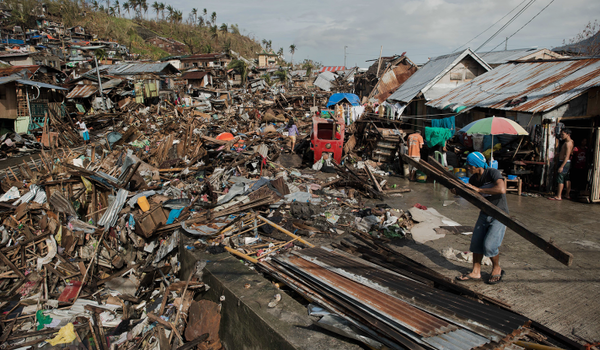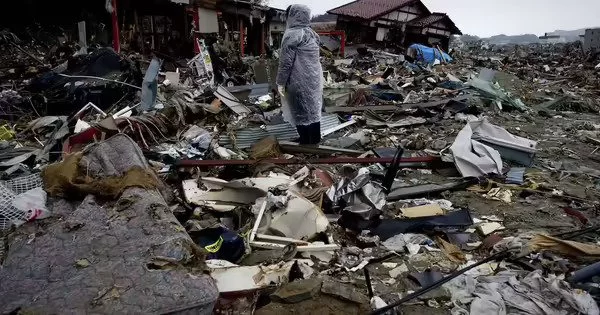Disaster-related trauma can have a range of adverse health effects on individuals, both physical and mental. Physical health effects can include injuries sustained during the disaster, as well as the development of physical illnesses due to the stress of the disaster and the changes in living conditions that often result.
Mental health effects can include the development of mental health disorders such as post-traumatic stress disorder (PTSD), depression, and anxiety. These mental health conditions can have a range of symptoms, including flashbacks, difficulty sleeping, difficulty concentrating, and changes in mood and behavior. It is important for individuals who have experienced disaster-related trauma to seek support and treatment, as untreated mental health conditions can have serious consequences for overall health and well-being.
According to a new study, people from low-income families are more likely to lose their homes in a disaster, and they are also more likely to develop functional limitations as a result of the disaster.
Major weather events such as last month’s 6.4 magnitude California earthquake, tornadoes in Louisiana, and a “once-in-a-generation” multi-state winter storm caused significant damage to homes and disrupted daily lives across the United States. As climate experts predict that these natural disasters will become more severe and frequent, a new study led by a School of Public Health researcher sheds new light on the negative health consequences that certain vulnerable populations face after losing a home due to severe weather damage.
Published in the American Journal of Epidemiology, the study found that individuals from disadvantaged backgrounds disproportionately experience disaster-related home loss — and that they are more likely to be severely affected by home loss, namely by developing physical and mental functional limitations in the years after they lose their home.
Our study moved beyond the traditional finding on population-average effects and identified complex effect heterogeneity. These results help policymakers by providing insights on the impacts that disaster damages may have on health disparities, which analysis of population-average effects ignores.
Dr. Koichiro Shiba
The groundbreaking study expands on previous research that focused solely on population-average data on home loss and negative health effects; the new study identifies vulnerable populations that are more likely to be severely affected by this traumatic experience. People who are older, unmarried, living alone, less educated, and unemployed, as well as those who had health problems prior to losing their homes, fall into this category.
Identifying populations at exceptionally high risk of post-disaster functional impairment, according to the researchers, may better inform resource allocation during disaster mitigation, preparedness, response, and recovery efforts at the local and federal levels.
“Our study moved beyond the traditional finding on population-average effects and identified complex effect heterogeneity,” says study lead and corresponding author Dr. Koichiro Shiba, assistant professor of epidemiology at Boston University School of Public Health. “These results help policymakers by providing insights on the impacts that disaster damages may have on health disparities, which analysis of population-average effects ignores. The results can also be used to identify which subpopulations need to be prioritized in post-disaster public health supports.”

For the study, Dr. Shiba and colleagues used machine learning methods to identify variations in the association between disaster-related trauma and functional limitations among a group of older survivors of the 2011 Great East Japan Earthquake and Tsunami. The 9.1-magnitude earthquake and 40-meter tsunami killed nearly 16,000 people and rendered more than 450,000 people homeless.
The researchers used pre- and post-disaster survey data from the Iwanuma Study, which is part of a larger nationwide study of Japanese older adults’ living conditions, to assess individuals’ functional limitations in 2013 and 2016 based on three indicators: standardized assessments of physical disability (such as whether someone can turn over in bed independently); the ability to accomplish daily activities independently (such as walking, bathing, and going to the bathroom); and high mobility (such as using public transportation).
The researchers discovered that people who had more severe functional limitations after losing their home had less education and more pre-disaster health problems, such as depression. However, they discovered that these individuals had a higher income prior to losing their home.
One explanation for this finding could be status inconsistency, which occurs when “different aspects of social status contradict with each other and potentially magnify the adverse effects of disaster-related home loss,” according to Shiba. Previous research has found that higher-income people are more likely to engage in binge drinking, which can lead to impaired functioning.
He adds that “rather than moving to a temporary housing village with other survivors, richer people may have been able to afford and relocate to private housing after home loss, which could result in loss of pre-existing social capital and support.”
Understanding the underlying mechanisms that result from home loss and other traumatic experiences, he says, will help inform more targeted public health interventions in the aftermath of future severe weather events.
















